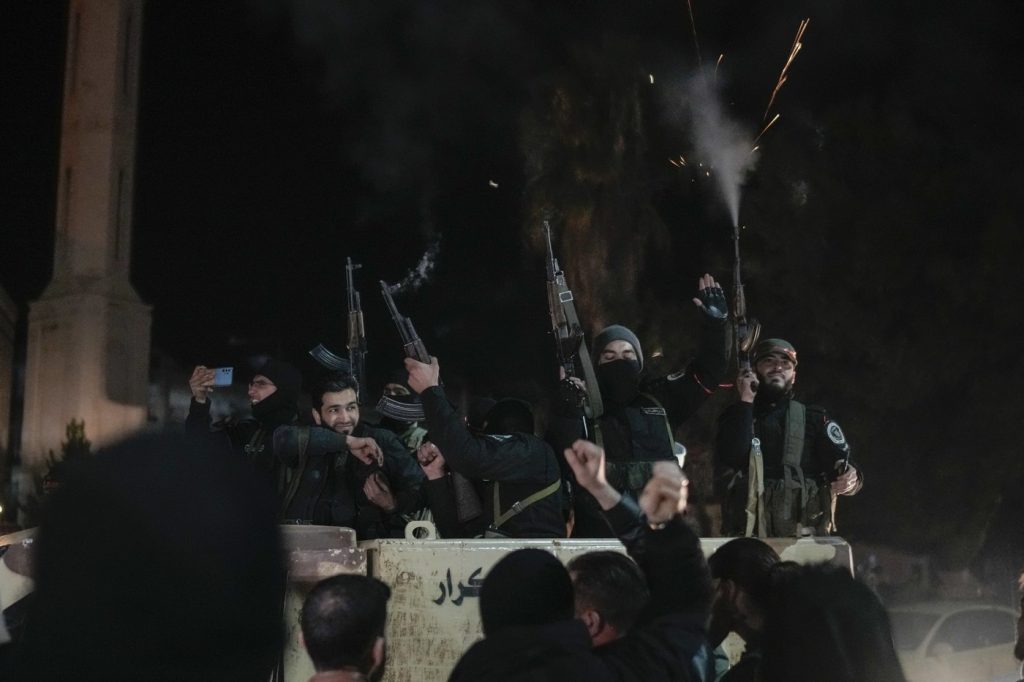OTTAWA 0 Canadians with ties to Syria are urging the federal government to lift sanctions against the country and provide support to its new leadership in fostering a democratic and pluralistic society. Bayan Khatib, co-founder of the Syrian Canadian Foundation, emphasized the importance of supporting Syria during its vulnerable transition phase.
“There’s a lot to be lost if we do not support Syria at this vulnerable time,” Khatib stated. According to her, the Syrian populace has liberated itself from a 51-year dictatorship under Bashar Assad, with Hayat Tahrir al-Sham (HTS), which Canada classifies as a terrorist organization, having assumed control after Assad's regime was toppled in December 2024.
For the past ten years, HTS has promised to establish an Islamic theocracy in Syria and has maintained its designation as a terrorist organization by Canada since 2013. Experts warn that continuing these sanctions might drive desperate Syrians to seek financial assistance from other hostile entities.
Marie-Joëlle Zahar, a political scientist at the Université de Montréal and a former UN expert on Syria, commented that “constructive engagement can actually help ensure that this process is steered in the right direction, instead of potentially ceding to pressure from more extremist groups.” She noted signs of hope within Syria, suggesting that Syrians want to judge their new leaders based on their actions rather than their past statements.
Khatib described an initial wave of excitement among Syrians when HTS facilitated the resolution of the Assad regime after a prolonged civil war. However, this optimism has shifted to despair as many Syrians face severe financial limitations, making it difficult to rebuild their lives and access essential resources. Current sanctions impede their ability to raise funds, which is critical for repairing homes and establishing businesses.
Canada's development assistance has been obstructed from reaching HTS-controlled regions, echoing a similar policy that has been in place regarding Afghanistan since August 2021. Khatib mentioned that with just a few thousand dollars, many displaced Syrian families could make significant improvements to their dwellings, yet sanctions pose substantial roadblocks to fundraising efforts.
Khatib, during a meeting with then-Prime Minister Justin Trudeau in February 2025, urged the government to reconsider its stance on sanctions, increase humanitarian aid, restore infrastructure funding, reopen the Canadian embassy in Syria, and send a high-level delegation that includes members of the Syrian diaspora. She stressed the critical nature of the current moment, stating, “This is a very, very fragile, vulnerable, important moment in time, where there’s so much to be gained and so much to be lost if Syria isn’t supported in the right ways.”
Omar Alghabra, Canada’s special envoy for Syria, has also expressed similar sentiments while visiting neighboring countries. Most recently, Trudeau spoke with Ahmed al-Sharaa, Syria’s interim president, commending the end of the Assad regime. During a Paris summit, leaders from the West and the Middle East indicated a willingness to ease restrictions on Syria, contingent on al-Sharaa's implementation of a multicultural society.
Zahar recommended that Canada consider sending a high-level delegation to Syria to share insights on maintaining a multicultural society. She noted that such visits could indicate a willingness for dialogue and constructive engagement, which many Syrians, including those in Canada, have been advocating for.
In light of recent sectarian violence in Syria, including the killing of 800 individuals, al-Sharaa has initiated investigations and taken steps toward integrating Kurdish soldiers into the armed forces. Zahar pointed out that stability in the Middle East is in Canada’s best interest, especially given issues like the ongoing Israel-Hamas conflict and its repercussions on Canadian communities.
Both experts and community leaders, such as Khatib, expressed feelings of abandonment by the international community during the long Syrian revolution and emphasized the unprecedented opportunity for Canada to step up in supporting the aspiration for a free Syria.










